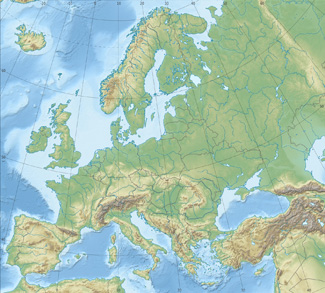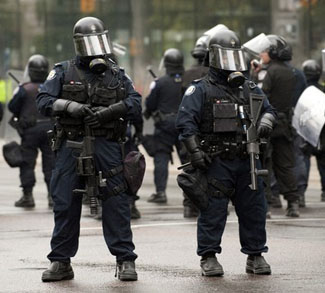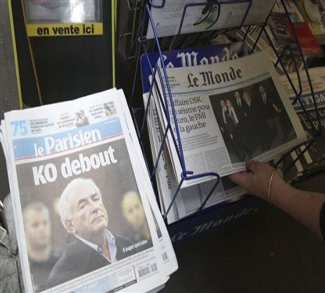Economics
The Euro Zone: Not out of the Woods Yet
Given the tough years that preceded it, 2013 turned out fairly positive for the crisis-ridden EU, though mostly in the sense that no new bad news can now be considered good news. GDP growth was largely stagnant throughout the year, but European leaders will surely take a lack of growth over the sharp contractions that plagued most EU economies following the breakout of the Greek debt crisis in 2009. Most analysts are predicting that the bloc will return to modest growth rates between 1.1% and 1.4% in 2014.
Yet even though the euro zone’s economic woes stayed outside the spotlight for much of 2013, and bond rates in the PIGS countries have dropped from previously dangerous peaks, the underlying problems that triggered the crisis in the first place still exist. Budget deficits remain commonplace in major economies such as Spain, Portugal, and France, and the tenuous economic recovery projected for 2014 won’t be enough to solve the continent’s pervasive unemployment problem. But most importantly, there has been no institutional reform of the EU treaty system in order to ensure that another contagion risk similar to the Greek crisis couldn’t be repeated. And given the euro-skepticism that is taking hold in several major European countries (the UK, France, Netherlands, and even Germany) – it’s unlikely that any such institutional reform will be forthcoming in the near future.
In a sense, the euro zone recovery is being powered by faith, the faith that European Central Bank President Mario Draghi’s 2012 remark of being prepared to do “whatever it takes” to save the euro zone carries the same weight and permanence as international law. But it’s not law. It’s a statement born of the political necessities of a time and place, and as such it can be reversed given a new set of circumstances.
While it’s quite likely that the euro zone will recover alongside the global tide of economic convalesce, it is also true that the bloc remains susceptible to economic shocks and predatory bond speculation. 2014 will be a telling year for Europe’s grand experiment, but one thing remains certain: the EU is not out of the woods yet.
A UK Success Story?
2014 looks set to be a positive year for economic growth in the United Kingdom. After posting a euro zone-beating estimated 1.4% growth in 2013, a robust recovery in the financial services sector is expected to contribute to an estimated 2.4% expansion in 2014. Positive economic indicators and record levels of household debt have led some to speculate whether Bank of England Governor Mark Carney will be raising interest rates in the near future, and the governor has already responded by saying he would not raise rates until the unemployment rate falls below 7% (it’s currently hovering around 7.3%). Despite an unsettling amount of debt-fueled consumer spending, the UK’s economic recovery seems legitimate. Expect Governor Carney’s first interest rate hike to come sometime after the 2015 general elections unless a super-heated job recovery forces his hand.
Russian State Finances under Pressure
The Russian economy is extremely oil and gas dependant, and by extension the Russian government requires oil prices of around $100 a barrel to balance its national budget. Towards the end of 2013 and in the beginning of 2014, we have seen downward pressure on oil prices and, with the possibility of new Iranian and Libyan exports hitting the market next year, there’s a real possibility that oil will plunge into the sub-$90 range.
Thus, 2014 and the years to follow might see a forced reshuffling of Russia’s priorities as it feels the squeeze of international energy markets. The most obvious consequence would be a reduction in military spending, and a commiserate rolling back of global power projection capabilities – likely at the direct expense of Putin’s push to modernize the Russian military and expand permanent military infrastructure in Eurasia and beyond.
Politics
Battle Lines Drawn in Ukraine
The ongoing situation in Ukraine threatens to send political shockwaves rippling through the Eurasian continent in 2014. The standoff has become more pronounced and combative recently with the announcement of new laws meant to curtail the right to free assembly. At this point in time, there are three possible outcomes tothe crisis. The parties involved may arrive at a negotiated compromise, in which case the policymaking process in Ukraine would still be handcuffed over the short-term, with the country’s ascension to the European Union association agreement only a matter of time. Alternatively, President Yanukovych could stay the course and intensify his government’s repression of the opposition movement in the hope of securing an electoral victory in 2015 (which would require no small amount of rigging going by current polls). Or, in the most troubling albeit unlikely scenario, the opposition movement might “jump the rails” of peaceful protest, transforming a largely political schism into an armed conflict.
The degree to which Russia will be able to serve as a competing patron to the EU is another key issue to watch in 2014. The combination of an expensive Sochi Olympic Games (currently priced at over $50 billion) and dropping global energy prices will compromise Moscow’s ability to throw large amounts of money at countries like Ukraine, with nothing more than the (some might argue vainglorious) intention of keeping them from falling into a European orbit.




